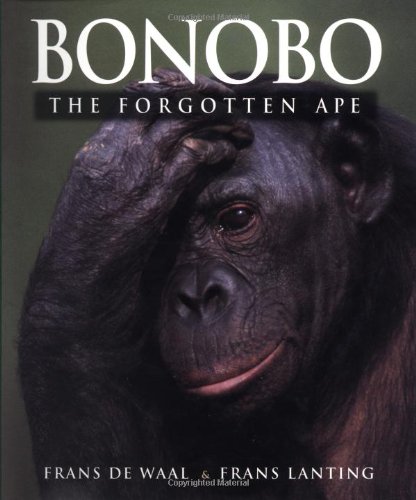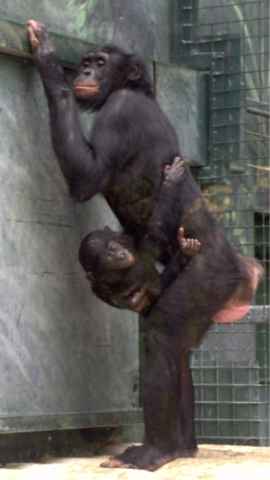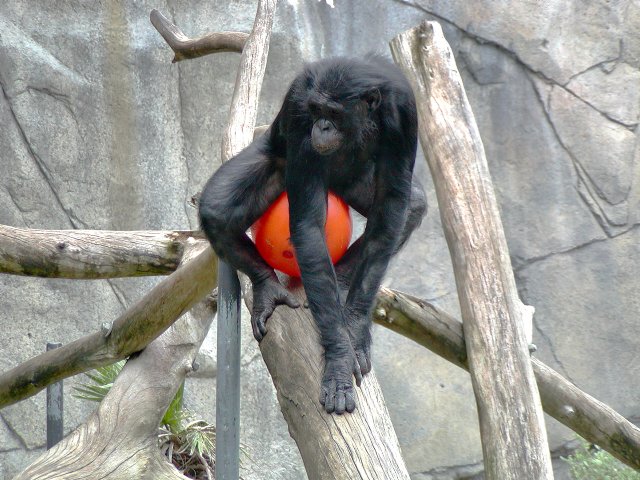
 |
Freethought & Rationalism ArchiveThe archives are read only. |
|
|
#31 |
|
Contributor
Join Date: Sep 2000
Location: Alibi: ego ipse hinc extermino
Posts: 12,591
|
Ref hair being age-linked: bear in mind the strong effect of neoteny (paedomorphosis -- retention into adult life of juvenile (or even foetal) characteristics) in humans. This is responsible for a heap of features, from the position of our foramen magnum and relative size of our head, to our retention of learning and play into adulthood. If hair is an age-linked trait, then simply our neoteny would explain (or go a long way to explaining) our hairlessness, without recourse to watery Australopithecines.
Cheers, Oolon |
|
|
|
|
#32 | |
|
Veteran Member
Join Date: Jul 2002
Location: Edinburgh. Scotland
Posts: 2,532
|
Quote:
[ September 13, 2002: Message edited by: seanie ]</p> |
|
|
|
|
|
#33 | |
|
Veteran Member
Join Date: Feb 2001
Location: ""
Posts: 3,863
|
Quote:
May fluffy rot in pieces. |
|
|
|
|
|
#34 | |||||||||||||||||||||
|
Veteran Member
Join Date: Apr 2001
Location: Canada
Posts: 5,504
|
Quote:
Quote:
Quote:
Quote:
Quote:
Quote:
Quote:
Quote:
Quote:
Quote:
Quote:
Quote:
Quote:
Quote:
Quote:
Quote:
Quote:
Quote:
Quote:
Quote:
Quote:
This is silly. The AAT is a fun thought experiment, but is naive and unfounded. Get over it. Peez |
|||||||||||||||||||||
|
|
|
|
#35 | |
|
Veteran Member
Join Date: Jul 2002
Location: Edinburgh. Scotland
Posts: 2,532
|
Quote:
Thanks. |
|
|
|
|
|
#36 | |
|
Senior Member
Join Date: Aug 2001
Location: Toronto
Posts: 506
|
There's yet another difficulty that no-one has addressed, namely: We have no idea when human hair became finer (technically, humans do not have "less" hair than apes. We carry roughly the same number of follicles. Our hair is generally finer and shorter...and then there's Robin Williams...). In other words, the notion that it is related to some aquatic phase is sheer unadulterated speculation with ZERO corroborating evidence, because a) I haven't yet seen any solid timing for this so-called phase and b) for all we know, australos or their precursors could have had reduced hairiness, or conversely it could have arisen well *after* any purported aquatic phase. We simply do not know, and neither do AAT-ers.
Quote:
|
|
|
|
|
|
#37 |
|
Veteran Member
Join Date: May 2002
Location: Just another hick from the sticks.
Posts: 1,108
|
Getting back to the swimming question: we might be the best primate swimmer (this, to my knowledge, has yet to be shown), but alongside the real aquatic and semi aquatic animals, we are slow and clumsy. We're just not built right for it.
Also, the thought occurs: most if not all animals, such as seals and whales, that returned to an a marine life style stayed there, evolving into what we see today. The Aquatic Ape Hypothesis just won't wash (hehehe, pun!) Incidently, there are cats that love the water. Tigers are often found swimming and even lying in the shallows soaking on a hot day. doov |
|
|
|
|
#38 |
|
Veteran Member
Join Date: Jul 2002
Location: Edinburgh. Scotland
Posts: 2,532
|
I don't think that's a valid comparison. OK aquatic and semi-aquatic animals are better adapted than us to a watery environment.
But that has no bearing on whether we adapted to a watery environment better than our ancestors. |
|
|
|
|
#39 |
|
Veteran Member
Join Date: May 2001
Location: Washington, DC
Posts: 4,140
|
Incidentally, if an aquatic ancestry explains (relative) hairlessness in humans, what explains (relative) hairlessness in bonobos?
     |
|
|
|
|
#40 |
|
Contributor
Join Date: Jan 2001
Location: Barrayar
Posts: 11,866
|
Vorkosigan evoked kangeroos in his post as an example of a savannah animal that adopted bi-pedalism but even in my ignorance I can tell that there is a difference between what they do and what humans do. They have very large back legs, I seem to remember, which enables them to leap along at about 30mph.
I thought we were in a two-legs-good, four-legs-bad scenario...... So they overcame ther inherent disadvantages of bi-pedalism in terms of speed by developing extremely powerful hind limbs. The only animals we can outrun, of any decent size, are sloths and I don�t think there were a lot of those to catch and eat on the savannah. Extremely powerful hind limbs are one solution. Complex social behavior is another solution to the problem of predators, as is technology. Homini has both, in spades. Running is just one strategy among many animals use to avoid getting eaten. Vorkosigan also mentioned hippos, elephants and rhinos as being hairless. I didn�t think the hippo was a savannah animal. Then what were all those hippos doing in savannah water holes that I saw in Kenya? I thought it spent most of its time in the water. Quite true, but the savannah is not a waterless environment. And is it known that the distant relatives of the elephant and rhino were not water-loving creatures? Morgan thinks they were. Great. That and a quarter.....does she have any evidence that they were? <a href="http://elephant.elehost.com/About_Elephants/Stories/Evolution/evolution.html" target="_blank">Evolution of Elephants</a> Does anyone have a better site? The cartiliginous shield which protects our nostrils is a very strange structure. Yes, it's found only in almost all other mammals, in one form or another. What advantage might it have had on the savannah? Maybe none. Question: do you think that all structural features of the human body must be explained in terms of the biome we inhabited during our development, or are some of them the result of other selection processes, such as sexual selection, plain old random mutation, etc? We can see quite clearly that when a human swims, it protects the nasal passages from an ingress of water. Not! Just flip over on your back. On the savannah, did it keep the dust out? Not very well, or perhaps humans would be less prone to hay fever. Never heard anyone make this claim about the nose and the savannah. In any case hay fever is caused not by the shape of the nose, but by inherited sensitivity. Dust in the nose is not stopped by the shape, but by fine hairs inside the nose. OK, so why don�t baboons walk around on their hind legs? Why doesn�t anything on the savannah walk around on its hind legs, apart from the kangeroo? Hmmm...you've never seen meerkats? Ostriches? Secretary birds? Also, this is a non-argument. Consider: what if bipedalism isn't related to biomes at all, but instead to other selection processes....<a href="http://www.indiana.edu/~rcapub/v18n1/p18.html" target="_blank">like food gathering/sharing?</a> Also, baboons solve the predator problem another way. Bipedalism is one strategy for solving problems, having fangs and a short temper (baboons) is another. And if height were a real advantage, humans didn�t do particularly well at acheiving it. Certainly in my case.... Presumably height would have had a survival advantage: taller specimens would have survived better and bred more successfully and humans would have got really tall. But how tall were our early ancestors? Or, maybe it was sexual selection. You've got to stop focusing on the biome, and think about the creature as a whole in its social environment. I sense closed minds here. I sense naive views of evolution, a lack of exploring of counterevidence, and a disturbing lack of familiarity with the environments in question. The Aquatic Ape suggestion (calling it a theory, and thus elevating it to the status of a proper scientific theory is clearly wrong) could, I suggest, get us thinking more constructively and creatively than has hitherto been in evidence. Sure. You know those close-minded paleoanthropologists. They never think creatively. And why, I wonder, such passionate insistence on the savannah suggestion? What is it about the savannah that makes scientists think it answers all the questions provoked by the features which so clearly distinguish us from any other mammal No scientist I know of attributes all of humankind's unique features to evolution in a savannah biome. They all have much richer and more diverse views of the possibilities. Vorkosigan |
|
|
| Thread Tools | Search this Thread |
|